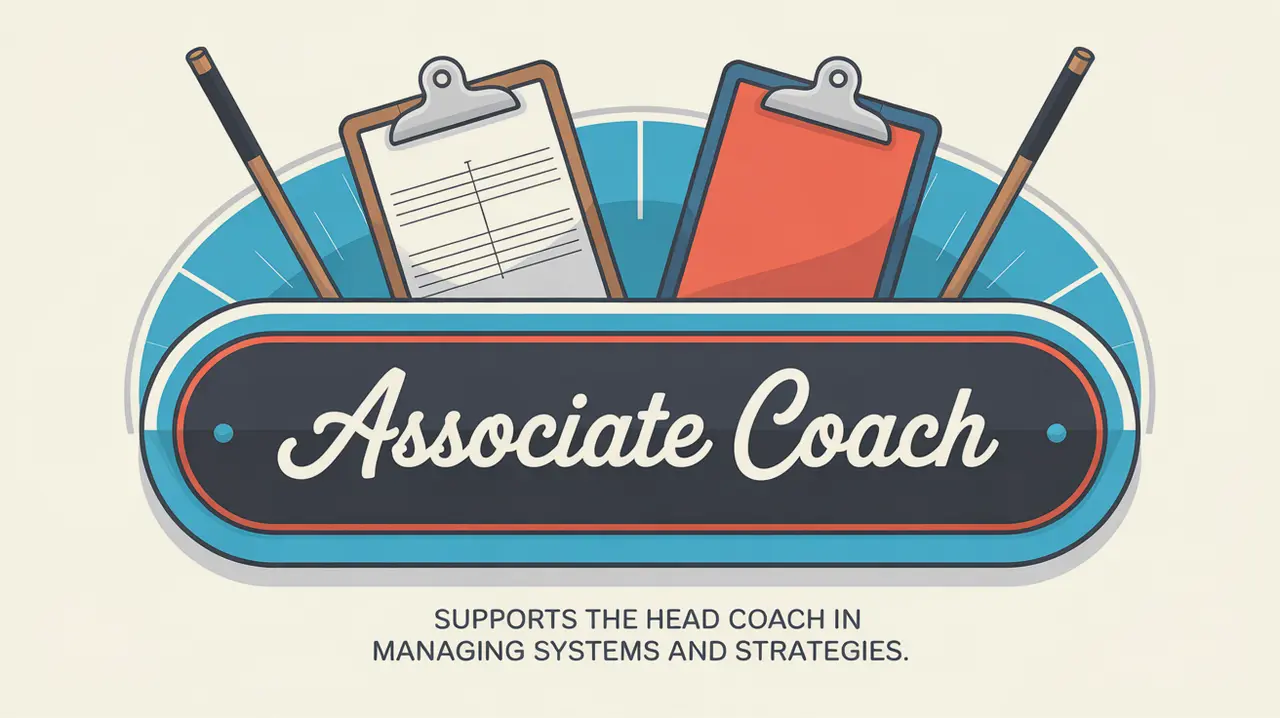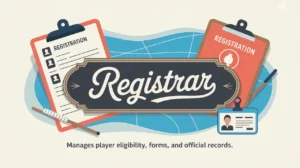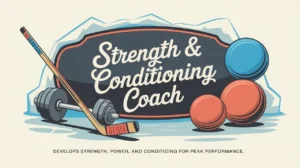Jim’s Intro to the Associate Coach
Hi folks, Jim here, the only commentator who greeted an associate coach by saying, “Wild that your last name matches your role. But why did your parents name you Associate? Were they hoping for a legal career?”
What is an associate coach?
The associate coach is the primary support and strategic partner to the head coach, often responsible for key tactical areas, player development, and operational leadership. In many organizations, the associate coach functions like a deputy head coach, stepping in to run the bench if the head coach is unavailable and carrying significant influence on systems and decisions.
Unlike assistant coaches, who usually have more specialized roles, the associate coach has broader responsibilities and greater authority within the coaching staff.
How does it work?
The associate coach contributes to the game through strategic partnership, leadership, and specialization:
Supporting Game Strategy
- The associate coach works closely with the head coach to develop and refine team systems, including offensive structures, defensive schemes, and special teams plans.
- They provide alternative perspectives and tactical insights during games, helping shape adjustments in real time.
Running the Bench When Needed
- If the head coach is ejected, ill, or otherwise unavailable, the associate coach takes over bench leadership.
- Even during normal games, they often manage a specific side of the bench, such as defense pairings or special teams units.
Player Development and Mentorship
- Associate coaches often lead development programs, mentoring players in key roles and helping them transition between levels (e.g., juniors to pros).
- They serve as a bridge between the head coach and the locker room, offering guidance and clarity.
Special Teams Oversight
- Many associate coaches take ownership of the power play or penalty kill, designing schemes and running drills to maximize performance in those crucial areas.
Internal Leadership
- Beyond the bench, the associate coach supports staff coordination, practice planning, and sometimes media duties, allowing the head coach to focus on broader strategy and leadership.
Common Situations Involving Associate Coaches
- Running Special Teams: Leading power play or penalty kill units during practice and games.
- Managing the Bench: Handling defensive changes or coordinating line matchups.
- In-Game Adjustments: Offering tactical feedback to the head coach between whistles.
- Taking Over Temporarily: Leading the team when the head coach is absent.
- Mentoring Key Players: Working closely with developing talent or players in specialized roles.
How do you make good decisions with it?
Effective associate coaches rely on communication, trust, and tactical clarity.
- Collaborate with the Head Coach: Align on vision and strategy before the puck drops.
- Own Your Areas: Lead special teams or tactical segments with confidence and precision.
- Bridge the Locker Room and Bench: Players often approach associate coaches for feedback and support, so handle that role wisely.
- Offer Clear Input: During games, be concise and focused when giving suggestions.
- Respect the Chain of Command: Authority is shared, not duplicated.
How do you master it?
Mastering the associate coach role requires deep hockey knowledge, strong leadership, and emotional intelligence. Associate coaches develop a clear tactical voice while learning to support and complement the head coach’s leadership style. They often gain head coaching experience by proxy, managing significant responsibilities while preparing for future opportunities.
What does it look like when done right?
A great associate coach runs special teams with precision, communicates seamlessly with players and staff, and provides sharp tactical insights without stepping on toes. If the head coach steps away, the team doesn’t miss a beat. Players trust them, the staff relies on them, and the game plan flows smoothly.
Commentator’s Corner
Jim’s Take
The associate coach is like the trusty co-pilot. When turbulence hits, they’re the one flipping switches, calming the cabin, and keeping the flight on course.
Parent Tip
Associate coaches often play a big role in player development. Encourage your player to build respectful relationships with them, understanding that they can be valuable mentors.
Player Tip
Associate coaches can be your best allies. They’ll give honest feedback, help you earn more responsibility, and often advocate for your growth with the head coach.
A Final Thought
The associate coach is the steady hand beside the head coach, blending tactical sharpness with leadership and mentorship. When mastered, the role balances strategic partnership and operational command, making the entire coaching staff stronger and more cohesive.









